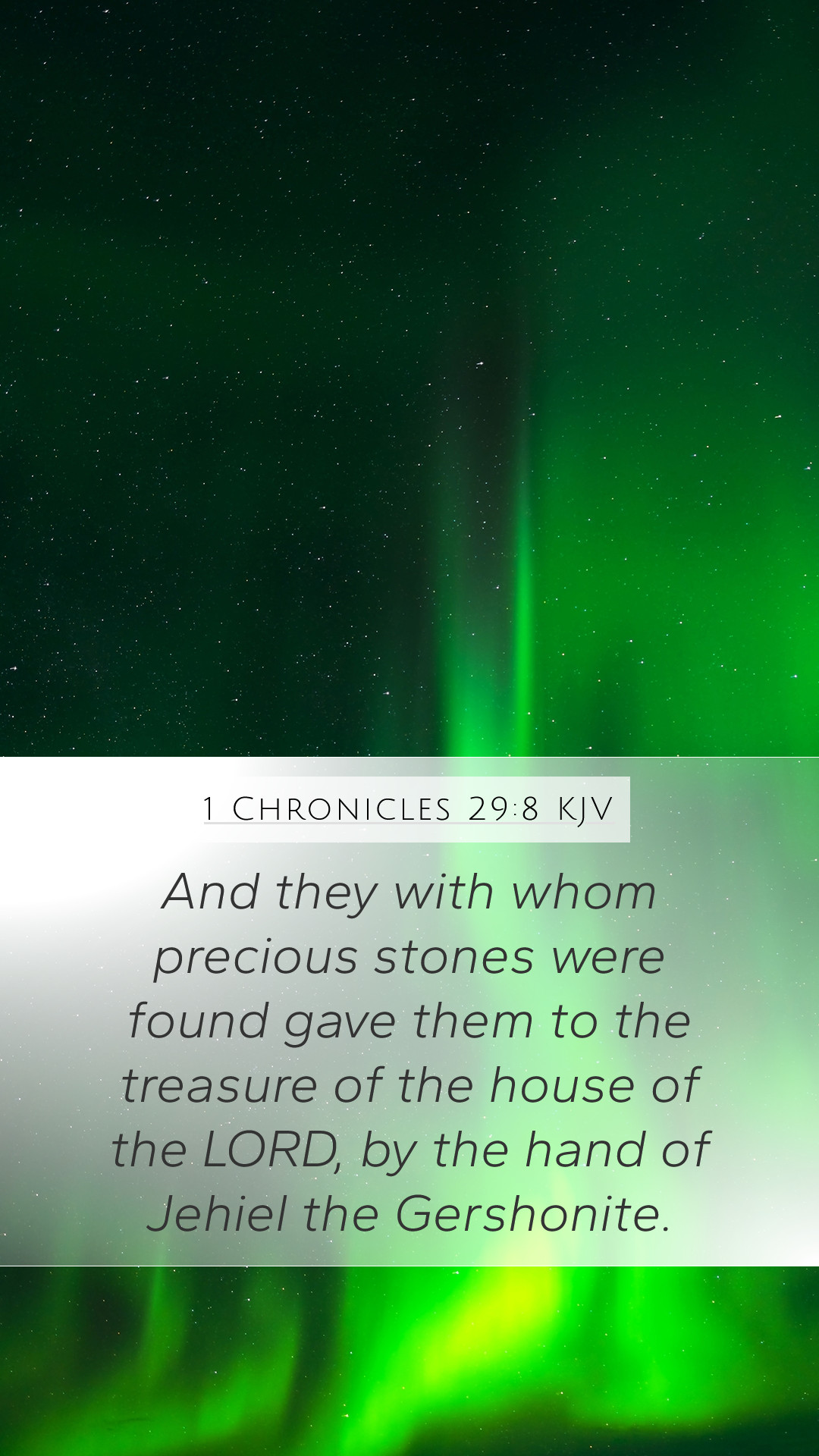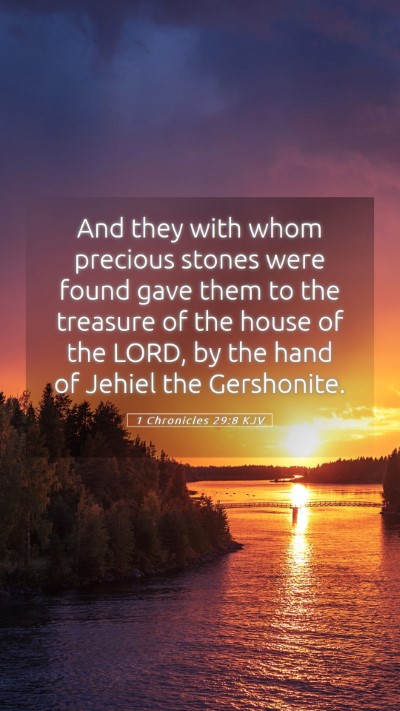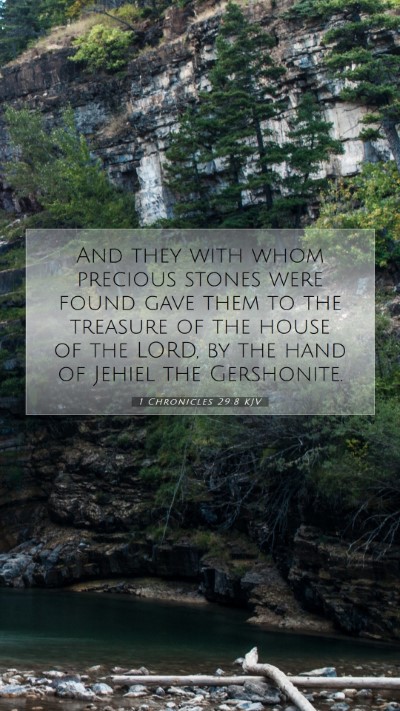Bible Verse Commentary: 1 Chronicles 29:8
In this passage, we find a significant moment in the history of Israel, particularly focusing on the people's attitude toward contributing to the temple of God. This commentary will unpack the essence of this verse, drawing insights from renowned commentaries by Matthew Henry, Albert Barnes, and Adam Clarke, to provide a comprehensive understanding of its meaning and implications for our lives.
Context and Background
The book of 1 Chronicles serves as a recount of Israel's history, emphasizing David's reign and preparations for the construction of the temple. Chapter 29 finds King David gathering materials and financial contributions from the leaders of Israel to prepare for the temple's building, a significant act of devotion and communal effort towards God's dwelling place.
Verse Overview
1 Chronicles 29:8: “And they with whom precious stones were found gave them to the treasure of the house of the Lord, by the hand of Jehiel the Gershonite.”
Meaning and Analysis
This verse highlights several key themes around generosity, commitment, and the notion of divine service. The contributions of precious stones signify not just material wealth but also the value they placed on the worship of God.
1. Generosity in Worship
Matthew Henry notes that the people willingly contributed what was valuable to them, demonstrating that true worship often involves personal sacrifice and the offering of one's best. This act of giving shows their reverence for God and His house, conveying the sentiment that worship should be costly if it is to be truly meaningful.
2. Collective Effort
According to Adam Clarke, the collective offering from the people underscores a unity of purpose among the Israelites. They recognized the significance of building the temple not just as a physical location but as a central point for their national and spiritual identity. This collective contribution teaches the importance of working together for a common spiritual goal, reflecting the essence of Bible study groups or church communities gathered to serve a greater cause.
3. Divine Ownership and Stewardship
Albert Barnes emphasizes the idea of stewardship, where the contribution is not only a gift but reflects their understanding that all things ultimately belong to God. When individuals or communities come together to support a cause, it indicates their recognition of God’s sovereignty over their resources. This insight connects to broader Bible study insights regarding how we perceive our possessions and the responsibility that comes with them.
Practical Application
This verse invites believers to examine their own contributions to their communities and to God's work. It asks us to consider:
- What are we willing to give for the sake of our faith?
- How do our contributions reflect our relationship with God?
- In what ways can we engage in online Bible study to further enhance our understanding of these themes?
Additional Considerations
Further reflection upon 1 Chronicles 29:8 can lead to a discussion about the significance of sacrifice in our spiritual lives—how God calls us to offer not merely from abundance but from our scarcity, much like the widow's offering in the New Testament.
Cross References
This verse is also related to:
- 2 Samuel 24:24 - David's understanding of the cost of offerings.
- Exodus 25:2 - God's command for contributions for the tabernacle.
- Malachi 3:10 - The call to bring tithes into the storehouse.
Conclusion
1 Chronicles 29:8 serves as a profound reminder of Bible verse interpretations that encompass themes of unity, commitment, and stewardship. By examining the offerings of the Israelites, we are challenged to think critically about our own contributions, both materially and spiritually, in our journey of faith.


